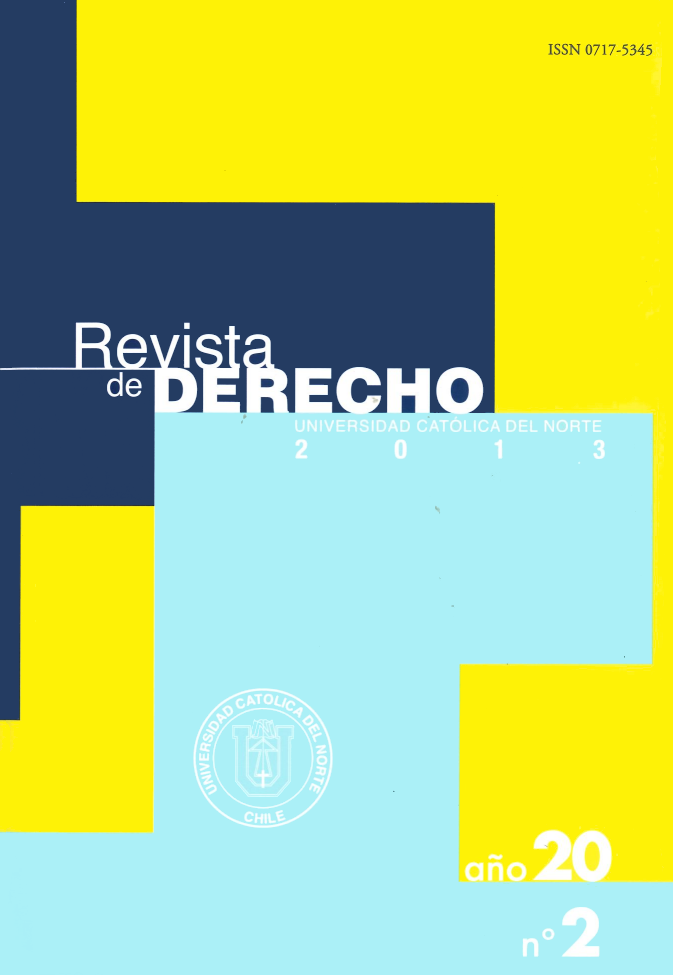On the permissibility of shooting down an aggressor plane carrying innocent passengers
Published 2015-03-26
Keywords
- Hijacked planes,
- Terrorism,
- Human dignity,
- Principle of the double effect
How to Cite
Abstract
This paper critically analyzes the judgment of the German Constitutional Court that declared unconstitutional a law allowing shooting down planes that have been hijacked to commit terrorist attacks. It is attempted to show that, against the Court's opinion, the action of shooting down a hijacked plane is not necessarily a violation of the dignity of innocent passengers traveling in it. The thesis defended in this paper is based on a doctrine developed by the jurists of the School of Salamanca, which requires distinguishing between those actions that intentionally seek the death of an innocent and those actions that bring about such a death as a side effect.
Downloads
References
BENNETT, Jonathan (2001). "Foreseen Side Effects versus Intended Consequences". En WOODWARD, P.A., (editor): The Doctrine of Double Effect. Philosophers Debate a Controversial Moral Principle. Indiana: University of Notre Dame Press.
BOYLE, Joseph (2004). "Medical Ethics and Double Effect: The Case of Terminal Sedation". Theoretical Medicine and Bioethics, Vol. 25.
COLLEGII SALMANTICENSIS FF. DISCALCEATORUM B. MARIAE DE MONTE CARMELI PRIMITIVAE OBSERVANTIAE, Cursus theologicus, tr. 13, De vitiis et peccatis (1658) Hemos consultado la edición de Joannis Antonii Huguetan et soc., Lugduni, 1679.
FINNIS, John (1980). Natural Law and Natural Rights. Oxford: Clarendon Press.
FOOT, Philippa (1967). "The Problem of Abortion and the Doctrine of the Double Effect". Oxford Review, Vol. 5, pp. 5-15, reimpreso en Woodward, P.A. (2001) (editor): The Doctrine of Double Effect. Philosophers Debate a Controversial Moral Principle. Indiana: University of Notre Dame Press.
GEORGE, Robert P. (1993). Making Men Moral. Civil Liberties and Public Morality, Oxford: Clarendon Press.
KACZOR, Christopher (2006). "The Violinist and Double-Effect Reasoning". The National Catholic Bioethics Quarterly, Vol. 6.
KRAMER, Herbert (1935). The Indirect Voluntary or Voluntarium in Causa, Washington D.C.: The Catholic University of America.
LADIGES, Manuel (2007). Die Bekãmpfung nicht-staatlicher Angreifer im Luftraum unter besonderer Berücksichtigung des § 14 Abs. LuftSiG und der strafrechtlichen Beurteilung der Tótung von Unbeteiligten, Seiten: Duncker & Humblot Verlag.
LADIGES, Manuel (2008). "Die notstandbedingte Tõtung von Unbeteiligten im Fall des § 14 Abs. 3 LuftSiG -ein Pládoyer für die Rechtfertigungslõsung". Zeitschrift für Internationale Strafrechtsdogmatik, Vol. 3.
LEDESMA, Pedro de (1605), Segunda parte de la Summa, tr. 3, c. 13. Se cita según la edición de Antonia Ramírez, Salamanca, 1605.
MIRANDA, Alejandro (2012). "Eutanasia, suicidio asistido y principio del doble efecto. Réplica al profesor Rodolfo Figueroa". Revista Médica de Chile, Vol. 140.
NAGEL, Thomas (1972). "War and Massacre". Philosophy and Public Affairs, Vol. 1.
QUINN, Warren (1989). "Actions, Intentions, and Consequences: The Doctrine of Double Effect". Philosophy and Public Affairs, Vol. 18.
RODRÍGUEZ DE SANTIAGO , José M. (2006). "Una cuestión de principios. La Sentencia del Tribunal Constitucional Federal alemán de 15 de febrero de 2006, sobre la Ley de Seguridad Aérea, que autorizaba a derribar el avión secuestrado para cometer un atentado terrorista". Revista Española de Derecho Constitucional, Vol. 77.
SPAEMANN, Robert (2003). "Sobre la imposibilidad de una ética teleológica en sentido universal". En SPAEMANN, Robert, Límites: Acerca de la dimensión ética del actuar. Traducción de Fernández, Javier y Mardomingo, José, Barcelona: Eunsa.
STRAUSS, Leo (1953). Natural Right and History. Chicago: University of Chicago Press.
STRAUSS, Leo (1996). Persecución y arte de escribir y otros ensayos de filosofía política, Valencia: Edicions Alfons el Magnànim.
SUÁREZ, Francisco, Commentaria in secundam secundae divi Thomae, scilicet de fide, de spe et de charitate disputationes (póstuma, 1621). Se utiliza la edición de Ludovicum Vivés, Parisiis, 1858.
VITORIA, Francisco de (1539). De indis posterior, sive De jure belli hispanorum in barbaros. Se cita según la edición crítica bilingüe de Teófilo Urdánoz (1960) en Obras de Francisco de Vitoria. Relecciones teológicas, Madrid: Biblioteca de Autores Cristianos.

